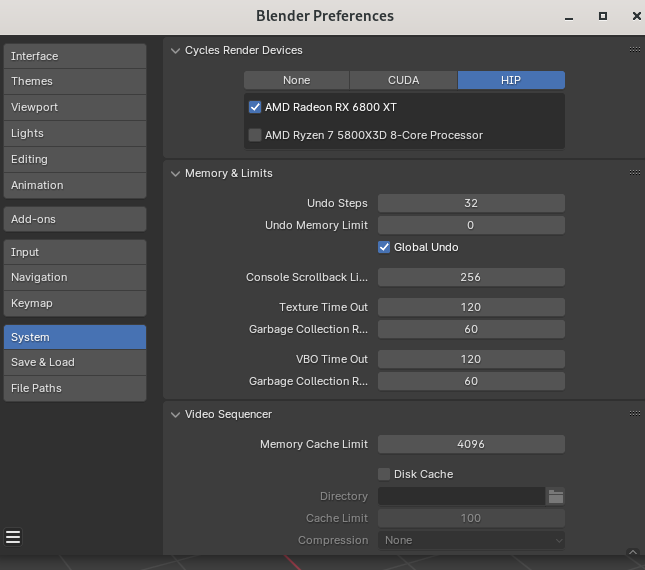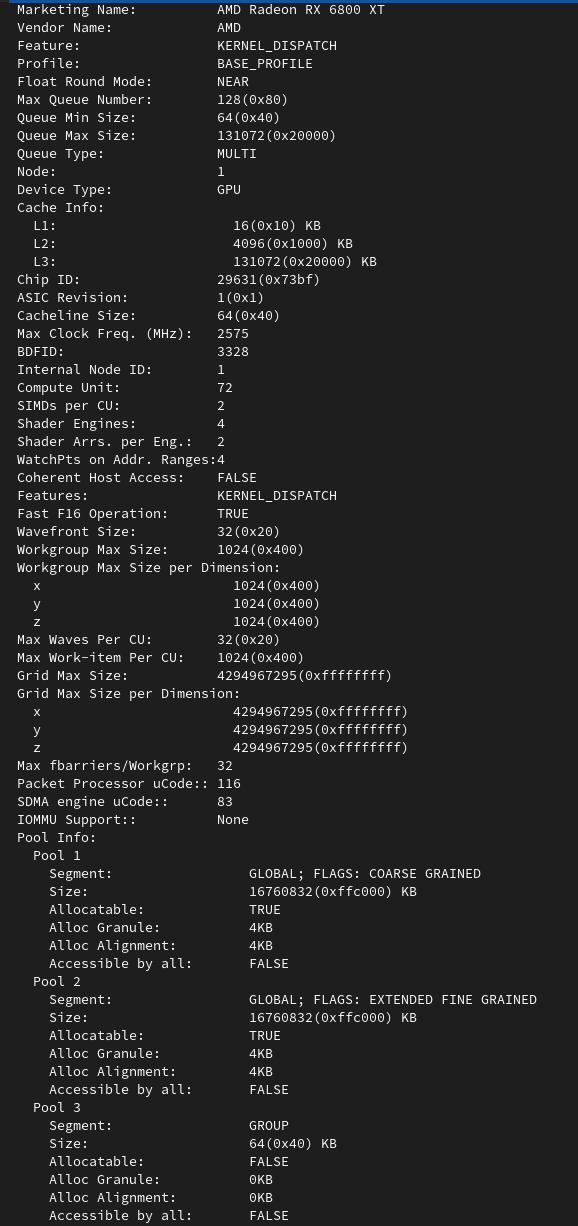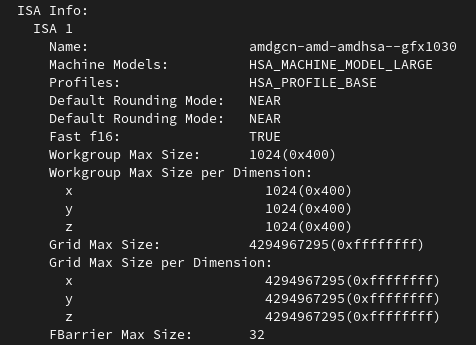Pro tip: NEVER try setting up ROCM/hip directly on hardware. AMD provides a docker container with it already setup.
Linux
From Wikipedia, the free encyclopedia
Linux is a family of open source Unix-like operating systems based on the Linux kernel, an operating system kernel first released on September 17, 1991 by Linus Torvalds. Linux is typically packaged in a Linux distribution (or distro for short).
Distributions include the Linux kernel and supporting system software and libraries, many of which are provided by the GNU Project. Many Linux distributions use the word "Linux" in their name, but the Free Software Foundation uses the name GNU/Linux to emphasize the importance of GNU software, causing some controversy.
Rules
- Posts must be relevant to operating systems running the Linux kernel. GNU/Linux or otherwise.
- No misinformation
- No NSFW content
- No hate speech, bigotry, etc
Related Communities
Community icon by Alpár-Etele Méder, licensed under CC BY 3.0
Why? Also I didn't know about any docker container and never seen any mention of it when looking up solutions.
Because it's a pain and can brick your graphics driver...
Does docker require virtualisation to be enabled?
No, this is not virtualization, it is a bunch of libraries and packages running on your native kernel and hardware
On Fedora you should use Podman for this
https://discussion.fedoraproject.org/t/rocm-container-questions-on-securing-containers/83955
Thanks, I'll look more into it once I get more time but from a glance this seems a bit too convoluted for my needs.
No this is the safe approach. Installing a 3rd party devel package may likely break your system
If it breaks, it breaks... But I'll give it a try on my laptop with PopOS
PopOS needs completely different packages though.
They base on Ubuntu LTS but ship newer mesa, kernel and maybe more.
Not sure if every component will be newer, so I would also expect conflicts.
Using an upstream provided container really sounds like a good solution.
Yeah, I'm aware it has different packages but I need to familiarise myself with docker first either way. Eventually I plan to switch both systems to PopOS Cosmic DE 24.04 once it fully releases so for now I'm spending most time just tinkering and trying to get more familiar with Linux. Pretty much all SW I use runs on it anyways too. Right now I want to get DavinciResolve up and running with my GPU.
Did you try COSMIC before?
You can do so on PopOS or I guess also Ubuntu. I personally use ublue Cosmic
davinci resolve may also run better in a docker / podman container
There also is a flatpak script that you should try. You need to download the binary for proprietary reasons, but packaging it as flatpak will assure
- it runs sandboxed
- it should just run
- it will not break with system updates
I did try and I like it a lot but I don't want to daily drive testing build.
Wasn't aware of the flatpack script, will check it out, thx!
COSMIC is not so much "testing" as in "many bugs", I basically found none. But they just lack maaany essential features. It is really breat to get a desktop that implements nice fancy stuff from Plasma etc. straight from the beginning.
I am not sure how ready it will be when it launches, as in features. But it is pretty nice and the apps are damn fast. I use the appstore on Fedora Kinoite when searching Flatpak apps. It has no native package integration so it does what I want, really nice.
HIPS/ROCm targets 7k series. At least that was what I recall from my research almost a year ago when I was shopping for a machine. The 7k stuff is from the enterprise design team side of AMD, while the 6k series and before were like a totally separate thing inside the company.
I got the impression 6k and before were only targeted at gaming. IIRC there was some project talked about a few months ago about doing some more back porting of the kernel API stuff, but I didn't save the reference. I think Brody Robertson posted something about it on YT/Odyssey etc.
I'm quite certain it's supposed to be working with 6000 series and up... I've even seen people run it on 5000 series RDNA cards in Blender like 1.5y ago on Fedora 37.
edit:
https://www.phoronix.com/review/blender-32-gpus
Officially, Blender 3.2 works with RDNA2 and RDNA(1) graphics cards on Linux with HIP. I was able to test all of my available Radeon RX 6000 (RDNA2) graphics cards with Blender 3.2, yeah! But with all my RDNA1 tested graphics cards they all yielded Blender 3.2 having a segmentation fault.
I'm presently having issues with 40 and old Stable Diffusion/ComfyUI related to torch and stuck in a dependency loop. Almost defiantly unrelated.
When I was looking into AMD a year ago or so, the 7k thing was in a conference somewhere on YT. It had to do with some kinds of conflicts or something like that in how 7k versus the older stuff was designed and how CUDA is set up. I really don't recall the details well. I was about to pull the trigger on a 6k setup, and after seeing that info I went the other direction.
I was researching the CPU scheduler at the time and I may be blurring this and the GPU stuff together when I say: I think it was the open source team that was talking about this in a Linux Plummers conference, it might have been about the enterprise GPU stuff and about HIPS or something like that. Sorry I'm fuzzy on it.
Edit: I was always only looking for the AI side, so the back end/kernel/API was all I cared about.
I just got it to work, I'll update the original post with solution.

edit:
now I need to figure out if I can this up and running https://github.com/vosen/ZLUDA as it seems quite a bit interesting for both of our use cases though I'm fine with ROCm for the meantime, got 3x faster render speed vs just using my CPU
Awesome, glad you got it working. ZLUDA indeed was the project I had seen info about and was doing the back porting.




